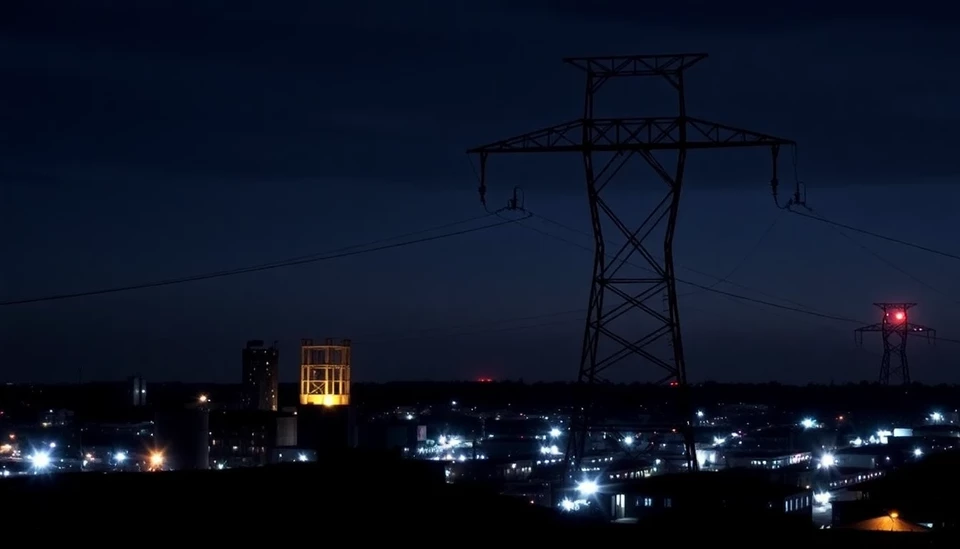
In a significant escalation of tensions between municipal authorities and the country’s key energy provider, Johannesburg officials have expressed strong discontent with Eskom’s recent threats to halt electricity supply to the city. This warning arises from Eskom’s ongoing struggles to manage its own operational challenges while meeting the energy demands of a nation beleaguered by power shortages.
City Manager Paul Vermeulen was vocal in his condemnation, stating that the proposed cut in power supply would result in dire consequences for local governance, businesses, and residents alike. He emphasized that such a move is not just a threat to the city’s infrastructure, but a potential blow to the economy as businesses rely heavily on stable power for their operations. "We should not hold our residents at ransom in a situation that is beyond their control," Vermeulen remarked.
The backdrop to these allegations is South Africa's ongoing energy crisis, characterized by intermittent load shedding that Eskom implements to balance demand and deteriorating supply capacity. Eskom has reportedly struggled with aging infrastructure and insufficient maintenance practices, leading to a precarious situation where it can barely keep up with the country's electricity needs. This has left major urban centers scrambling to secure alternatives to mitigate the impact of frequent blackouts.
The situation has prompted the Johannesburg municipality to seek legal advice regarding Eskom’s announcement. Vermeulen highlighted that the city aims to explore all available options to protect its residents and maintain essential services, stating, “We will explore every avenue available to us to ensure that our city is fairly treated and that we are not subjected to unreasonable threats from Eskom.”
In response, Eskom maintained that their decision stems from ongoing frustrations surrounding unpaid municipal debts. Johannesburg, being one of the largest electricity consumers in the country, owes a staggering amount to Eskom, which complicates the energy utility's ability to manage its operations effectively. As such, Eskom stresses that it cannot continue to provide power if debts remain unpaid, even as they negotiate with city officials.
Furthermore, the electricity provider underscored the need for municipalities to fulfill their financial commitments to sustain energy provision. Eskom has indicated that it is open to dialogue in hopes of reaching an agreement that benefits both parties, albeit with a rigorous insistence on the need for accountability and payment before services can be assured.
The confrontation between Johannesburg and Eskom is emblematic of the broader struggles facing South Africa's energy landscape. Public sentiment continues to grow frustrated as load shedding persists, disrupting daily life and threatening to derail economic progress. As authorities navigate this energy crisis, the implications for both governance and economic development remain grave, leading to an urgent call for solutions that can ensure a reliable power supply alongside addressing vital financial responsibilities.
As frustrations mount, residents and businesses alike are left anxiously awaiting the resolution to this unfolding conflict, hoping for a balanced outcome that prioritizes stability and growth.
<>#> #Eskom #Johannesburg #EnergyCrisis #LoadShedding #PowerSupply #MunicipalDebts #SouthAfrica #EconomicImpact #ElectricityProvider #<
Author: Daniel Foster




